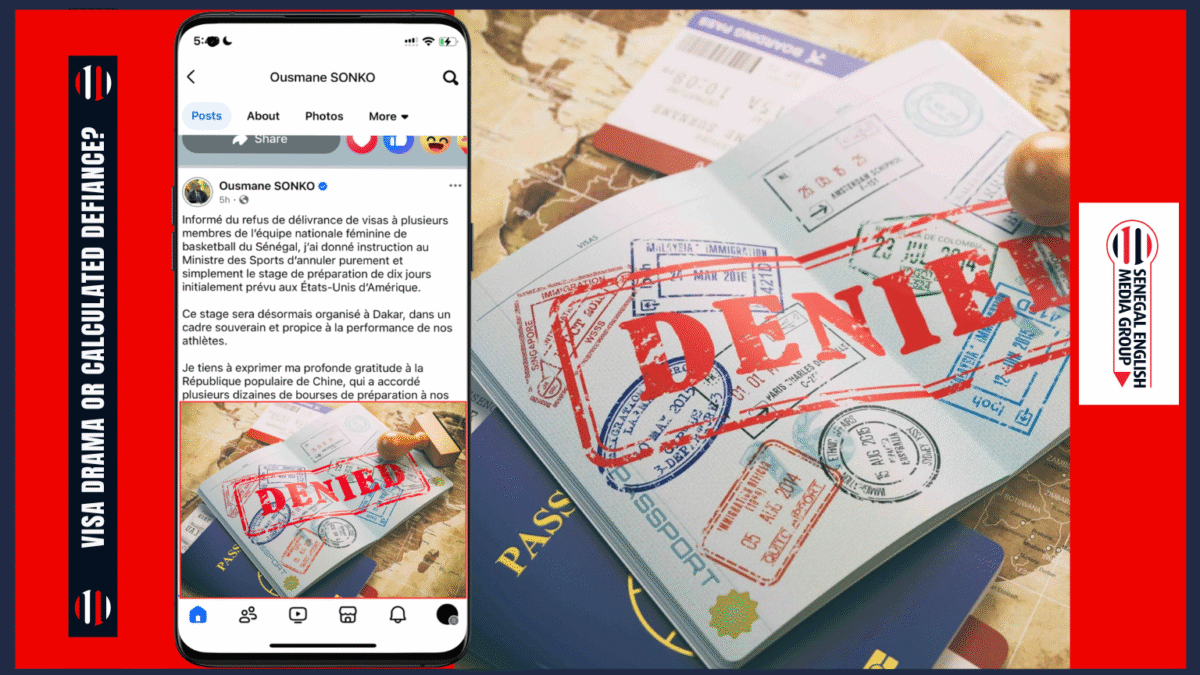
When several Senegalese women’s basketball players were denied U.S. visas, Prime Minister Ousmane Sonko took action—swift, symbolic, and headline-grabbing.
He canceled the team’s training camp in the U.S., relocating it to Dakar and framing the decision as an act of sovereignty and national dignity. And maybe he was right to stand firm. But was this the most strategic path forward for the athletes?
Yes, Senegal is a proud nation. Yes, visa denials sting, especially when they involve elite competitors. But elevating a bureaucratic setback into a full-blown statement on global power dynamics feels, at best, theatrical. Importantly, this isn’t an isolated case.
Nigerian sprinters were recently denied Chinese visas ahead of the 2025 World Relays. An Argentine footballer faced a similar U.S. block before the Club World Cup. Even esports stars have been sidelined by paperwork. Frustrating? Absolutely. But most teams recalibrate, quietly, and move on.
Sonko chose another route: a bold, attention-grabbing pivot that some would call a diplomatic tantrum dressed in patriotism.
Canceling a high-stakes training camp and re-centering it in Dakar wasn’t just reactive—it was symbolic. But was it also performative?
Then comes the pivot to China. Announcing scholarships and Olympic prep support from Beijing is being spun as a win, but it reads more like rebound diplomacy. It conveniently sidesteps a basic truth: the U.S. remains a premier destination for elite sports training.
Were we willing to forgo that just to flex? The “new doctrine of cooperation” sounds impressive.
But let’s not pretend the players were the true beneficiaries here. This wasn’t about preparation, it was about optics. About posturing. And maybe, about distracting from more pressing issues at home.
In the end, it is the athletes who pay the price—not because visas were denied, but because politics got prioritized over performance.


